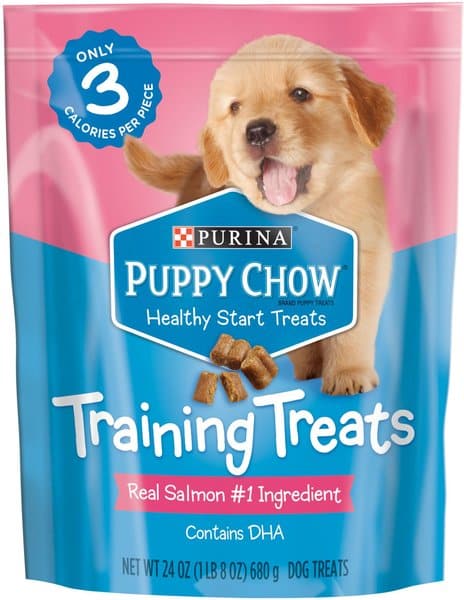Have you ever wondered if puppies can safely indulge in the deliciousness of beef jerky? Well, wonder no more! In this article, we will explore the question of whether puppies can or cannot eat beef jerky. With adorable puppies and their love for treats in mind, we dive into the topic to provide you with some valuable insights. So, grab your furry friend and let's find out if beef jerky is a suitable snack for them!

This image is property of images.pexels.com.
The Dangers of Feeding Puppies Beef Jerky
Introduction
When it comes to treating our furry friends, it's important to make wise decisions that prioritize their health and well-being. While beef jerky may be a delicious snack for us humans, it's important to understand the potential dangers it poses for puppies. In this article, we will explore the hazards of feeding puppies beef jerky, and provide a comprehensive guide on alternative treats, feeding guidelines, and special considerations to ensure your puppy's health and happiness.
Choking Hazard
One of the key dangers of feeding puppies beef jerky is the risk of choking. Beef jerky is often tough and can easily become lodged in a puppy's throat, causing choking and difficulty breathing. Puppies have small throat openings, making them more prone to choking on food items that are not easily breakable or chewable. Therefore, it is best to avoid feeding beef jerky to puppies to prevent this potential hazard.
High Sodium Content
Another concern when it comes to feeding puppies beef jerky is the high sodium content. Beef jerky is typically heavily seasoned and processed, resulting in a high salt concentration. While sodium is an essential mineral for dogs, excessive intake can be harmful, particularly for puppies. Too much sodium can lead to dehydration, kidney problems, and even heart issues. It is crucial to prioritize a balanced diet for puppies, and high-sodium treats like beef jerky should be avoided.
Potential Allergies and Digestive Issues
Puppies, like humans, can develop allergies or sensitivities to certain foods. Beef jerky contains various ingredients such as spices, preservatives, and additives that may trigger an allergic reaction or cause digestive issues in puppies. These reactions can manifest as skin irritations, vomiting, diarrhea, or abdominal discomfort. To ensure your puppy's well-being, it is best to steer clear of beef jerky and opt for treats that are specifically formulated for their dietary needs.
Risk of Bacterial Contamination
Feeding puppies beef jerky also poses a significant risk of bacterial contamination. Jerky, especially homemade or improperly processed versions, can harbor harmful bacteria such as Salmonella or E. coli. Puppies have developing immune systems that are more susceptible to infections, making them particularly vulnerable. Consuming contaminated beef jerky can lead to serious illnesses and may require veterinary intervention. It is essential to prioritize your puppy's health by feeding them safe and sanitary treats.
Alternative Treats for Puppies
Healthy Treat Options
When it comes to choosing treats for your puppy, there are plenty of healthy alternatives to beef jerky. Opt for treats made specifically for puppies, as they are formulated to meet their nutritional needs. Look for options made from natural, high-quality ingredients without any added artificial colors, flavors, or preservatives. Treats made from fruits, vegetables, or lean meats can be a great choice as they provide vitamins and minerals while being gentle on your puppy's digestive system.
Commercial Puppy Treats
There is a wide variety of commercial puppy treats available in the market that cater to different breeds, sizes, and dietary requirements. These treats have undergone rigorous testing and adhere to stringent quality standards to ensure the well-being of your puppy. Based on your puppy's age, breed, and any specific health considerations, consult with your veterinarian to identify the best commercial treats suitable for your furry friend.
Homemade Treats
If you prefer a more hands-on approach, making homemade treats for your puppy can be a rewarding experience. However, it's important to note that not all human foods are safe for dogs, so it's crucial to do thorough research and consult with your veterinarian before experimenting with homemade treats. There are numerous recipes available online that use dog-friendly ingredients such as pumpkin, peanut butter, and oats. Ensure you follow the recipe closely and avoid any ingredients that may be harmful to your puppy.
Consulting a Veterinarian for Recommendations
When it comes to choosing the best treats for your puppy, it's always a good idea to seek the advice of a veterinarian. They have a comprehensive understanding of your puppy's nutritional needs and can recommend suitable treat options based on their age, breed, and any specific health concerns. Your veterinarian can also guide you on portion sizes and frequency of treats to ensure a balanced diet. Consulting a professional will help you make informed decisions that prioritize your puppy's health and well-being.
Feeding Guidelines for Puppies
Puppy Nutritional Needs
Puppies have different nutritional needs compared to adult dogs, mainly due to their rapid growth and development. High-quality puppy food should form the foundation of their diet, providing balanced nutrition with the right amounts of proteins, fats, carbohydrates, vitamins, and minerals. Treats, including those mentioned earlier, should only complement their main meals and be given in moderation to prevent overfeeding and potential health issues.
Portion Control
Portion control is crucial when it comes to feeding puppies. It's easy to get carried away with treating them, but overfeeding can lead to obesity and related health problems. Follow the recommended feeding guidelines provided by your puppy's food manufacturer and adjust the treat portion accordingly. Treats should make up no more than 10% of your puppy's daily caloric intake to maintain a balanced diet.
Avoiding Harmful Ingredients
To ensure the health and safety of your puppy, it's essential to avoid feeding them treats with harmful ingredients. Common culprits include chocolate, caffeine, grapes, raisins, onions, garlic, and artificial sweeteners such as xylitol. These ingredients can be toxic or cause gastrointestinal issues in puppies. Always read the ingredient labels carefully and avoid any treats that contain potentially harmful substances.
Proper Snacking Habits
Establishing proper snacking habits early on is essential for your puppy's long-term health. Avoid using treats as a substitute for love or attention, as this can lead to overindulgence and unhealthy behaviors. Use treats as rewards for good behavior during training sessions or as occasional surprises, keeping in mind the recommended portion sizes. Encourage your puppy to chew treats slowly and enjoy them rather than gobbling them up.
Special Considerations for Puppies
Teething Stage and Suitable Treats
During the teething stage, puppies experience discomfort and a strong urge to chew. Providing suitable teething treats can help alleviate their discomfort and prevent destructive chewing behavior. Look for treats specifically designed for teething puppies, such as rubber chew toys or frozen treats. These options can soothe their sore gums and provide them with a safe outlet for their chewing needs.
Specific Breed Requirements
Different dog breeds may have specific dietary requirements or sensitivities. Consult with your veterinarian to determine if your puppy's breed has any unique considerations when it comes to treats. Some breeds may require lower-fat treats, while others may benefit from dental chew treats for better oral health. Understanding your puppy's specific needs will enable you to select treats that cater to their breed requirements.
Puppy Training Treats
Treats play a vital role in puppy training, as they serve as positive reinforcement for desired behaviors. Training treats should be small, soft, and highly palatable, making them easy for your puppy to consume quickly during training sessions. Utilize treats that your puppy finds particularly enticing, as this will provide an extra incentive for them to respond to your training commands. Remember to adjust your puppy's regular meal portions accordingly to avoid overfeeding.

This image is property of images.pexels.com.
Conclusion
Prioritizing your puppy's health should always be at the forefront of your mind when it comes to treating them. Beef jerky poses various dangers such as choking hazards, high sodium content, potential allergies, and the risk of bacterial contamination. Instead, opt for healthy treat options specifically made for puppies, explore commercial puppy treats, or consider making homemade treats with dog-friendly ingredients. Always consult with a veterinarian to ensure you are making the best choices for your puppy's well-being. By following feeding guidelines, considering special considerations, and choosing safe and nutritious treats, you can ensure your puppy grows into a healthy and happy adult dog.


